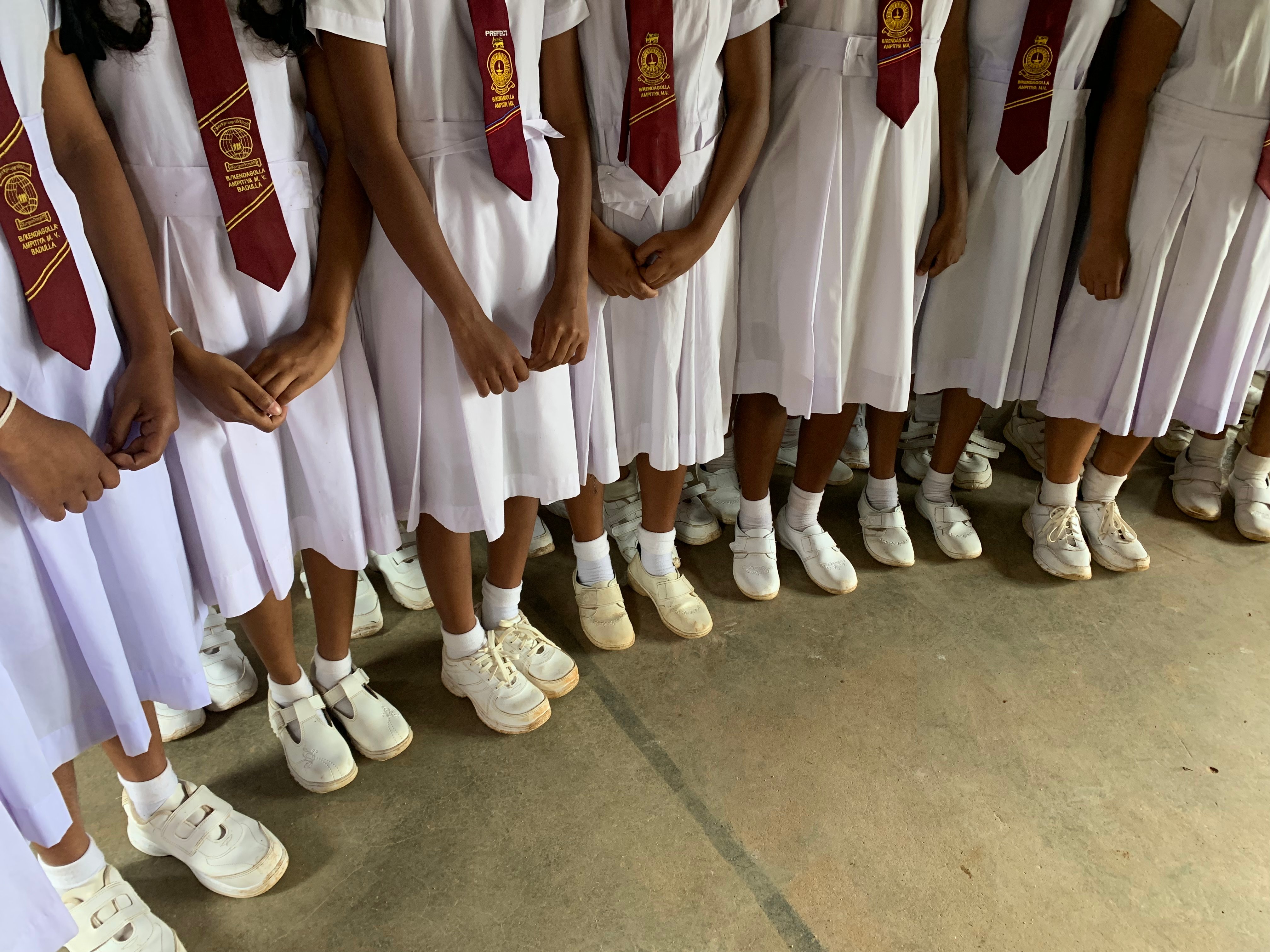
GESI Top Up Grants Awarded to Drive Inclusive Education Forward
Education Out Loud is proud to announce the groups of current Education Out Loud grantees awarded with Top Up GESI grants — extending the work of civil society organisations committed to advancing gender equality and social inclusion in education.
With all grant agreements signed, we are thrilled to share the full list of current Education Out Loud grantees awarded with Gender Equality and Social Inclusion (GESI) Top Up grants.
These grants will enable selected partners to expand and deepen their ongoing work to reach some of the most marginalised groups e.g. women, girls and youth, displaced children, LGBTQIA+ youth, indigenous peoples & ethnic minorities and students living with disabilities — ensuring that inclusive education becomes more than a goal, but a reality.
The call was designed to strengthen the work in GESI according to GPEs 2025 strategic plan, Education Out Loud 2024-26 Programmatic work and the ‘Policy Guidance Note on Inclusion Gender Equality‘.
“Gender Equality and Social Inclusion is at the heart of the Education Out Loud Programme as these aspects are critical to ensuring equal access to education for the most vulnerable groups in society that today are left out of education due to their gender, age, ethnicity, disability, geographical location or because they are affected by poverty, climate change or conflicts,” says Grethe Markussen, Senior Programme Coordinator at Education Out Loud.
Strong Response, and Even Stronger Ideas
The GESI Top Up call with a total funding envelope of 3,345,233 USD, was launched at the end of 2024 as a response to one of Education Out Loud’s Mid-term recommendations related to strengthening Gender and Social Inclusion in the program.
The call was open to all existing Education Out Loud grantees. It drew 69 relevant and interesting applications. Of these, 27 were selected — based on their perceived ability to strengthen ongoing efforts, and make an impact within a limited timeframe, as the grants are to be implemented before end of December 2026.
The Top Up grants provide additional resources to existing grantees and objectives and intend to strengthen, deepen, and scale this existing work. The selected grantees among other things aim to:
- Expand their membership with representatives from the most marginalised groups
- Ensure inclusive sector dialogue to influence GESI policies
- Review national education policies, sector plans, curriculum, and budgets – with a GESI lens
- Provide evidence and data on gender equality and social inclusion
- Raise awareness via media and school campaigns
“In the short term, we hope to see stronger engagement of marginalised voices in civil society and education discussions. In the long term, we wish to see these voices shape the actual policies, budgets, and structures that determine who gets access to a good quality education,” says Grethe Markussen and adds:
“We look very much forward to follow the work of these inspiring partners and to share the lessons, progress, and breakthroughs that emerge in the months ahead.”
School for Life to Strengthen Social Accountability for Marginalised Groups in Ghana
- School for Life and the CLEAR alliance in Ghana will work to deepen the integration of Fulbe ethnic minority communities and People with Disabilities (PWD) into local education accountability structures. Through studies assessing the current situation and needs of these groups, the coalition will build an evidence base to inform targeted advocacy. The initiative aims to enhance citizen groups’ capacity to engage with education authorities, promote inclusion, and ensure that girls, children with disabilities, and Fulbe children in deprived areas gain equitable access to quality basic education.
CONEPT DRC Establishes Gender Equality and Inclusion Committees
- The national education coalition CONEPT is creating a dedicated committee to lead on gender equality and social inclusion, tasked with drafting internal policies and a code of conduct. By expanding provincial membership, the coalition ensures marginalised voices— especially women, youth, people with disabilities, and Indigenous peoples — are represented. It also advocates for pregnant girls’ right to education, pushing for a national directive to end their exclusion from schools.
Mongolia Coalition Pushes for Reforms with Focus on Boys’ Disengagement
- In response to rising concerns about boys’ disengagement from education, the national education coalition in Mongolia is spotlighting their needs through a national report and policy advocacy.
It also addresses school-based gender violence and promotes inclusive education for LGBTQI+ youth and rural learners, aiming to reshape national education policy through a gender-transformative lens.
Tanzania’s TEN/MET Coalition Leads Climate-Responsive Education Reform
- Tanzania Education Network/Mtandao wa Elimu Tanzania [TEN/MET] is integrating climate resilience into education by training teachers in inclusive, climate-adaptive methods and supporting school-based climate clubs.
Its gender policy will guide advocacy to ensure that girls and children with disabilities can continue learning despite climate disruptions. Community-led awareness campaigns will further strengthen local resilience and support sustainable education access.
Bolivia’s CBDE Strengthens Inclusive Membership to Advance Gender Equality
- The Bolivian Campaign for the Right to Education (CBDE) is expanding its coalition to include feminist and marginalised groups, establishing consultative councils and training programs in key regions.
Its focus on decolonisation and depatriarchalising strengthens grassroots advocacy for a more inclusive and equitable education system. A new regional platform in La Paz and Santa Cruz will anchor these efforts and help shape responsive education policy reforms.
NCE Nepal Champions Peer-to-Peer Learning
- The national education coalition in Nepal (NCE) is pioneering peer-to-peer learning among local governments through exchange visits and learning tours. This approach builds practical knowledge and collaboration on inclusive education planning, while also broadening representation of women, Dalits, youth, and people with disabilities in coalition leadership. The model supports scalable reforms by strengthening intergovernmental relationships and local ownership.
